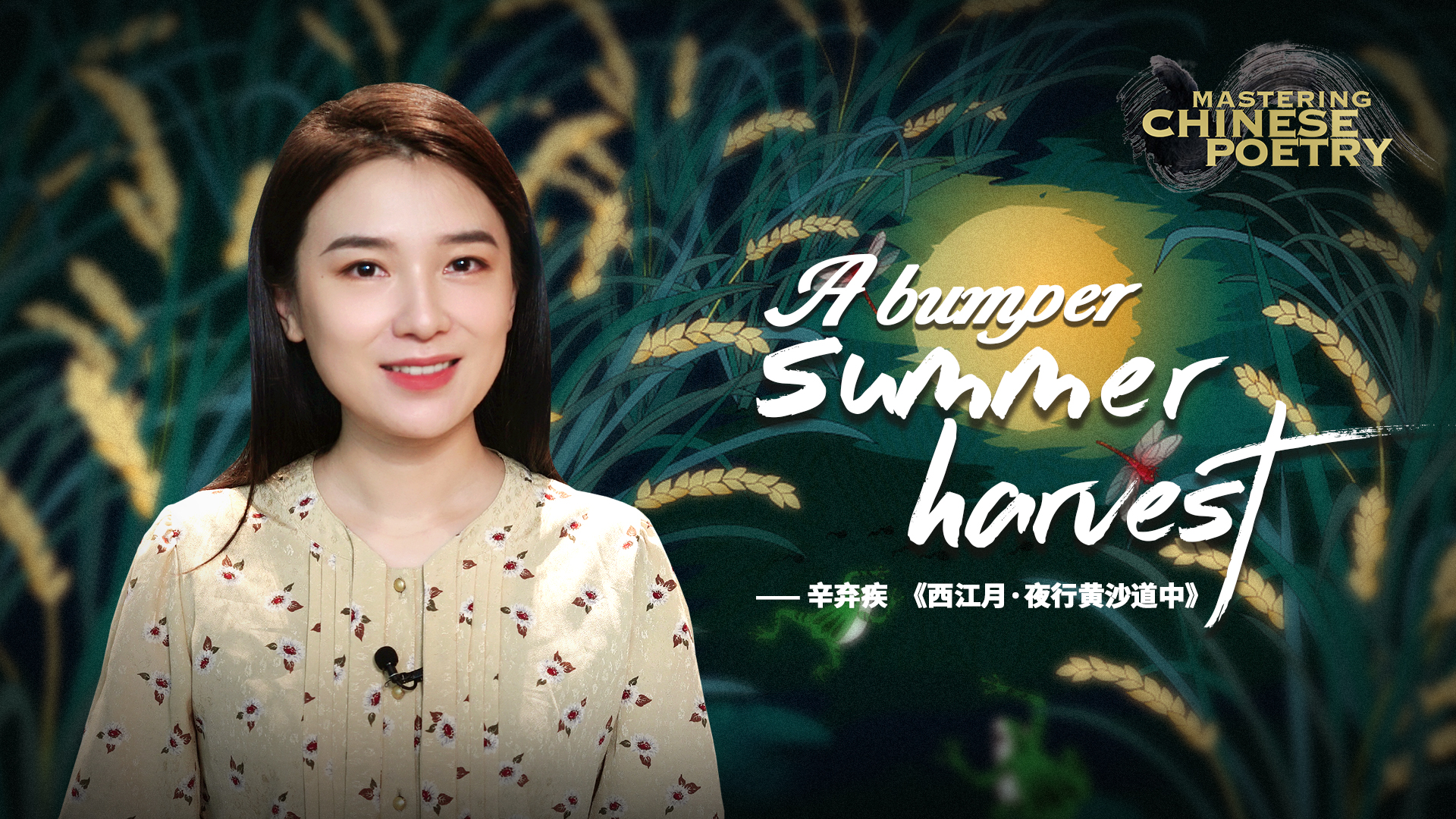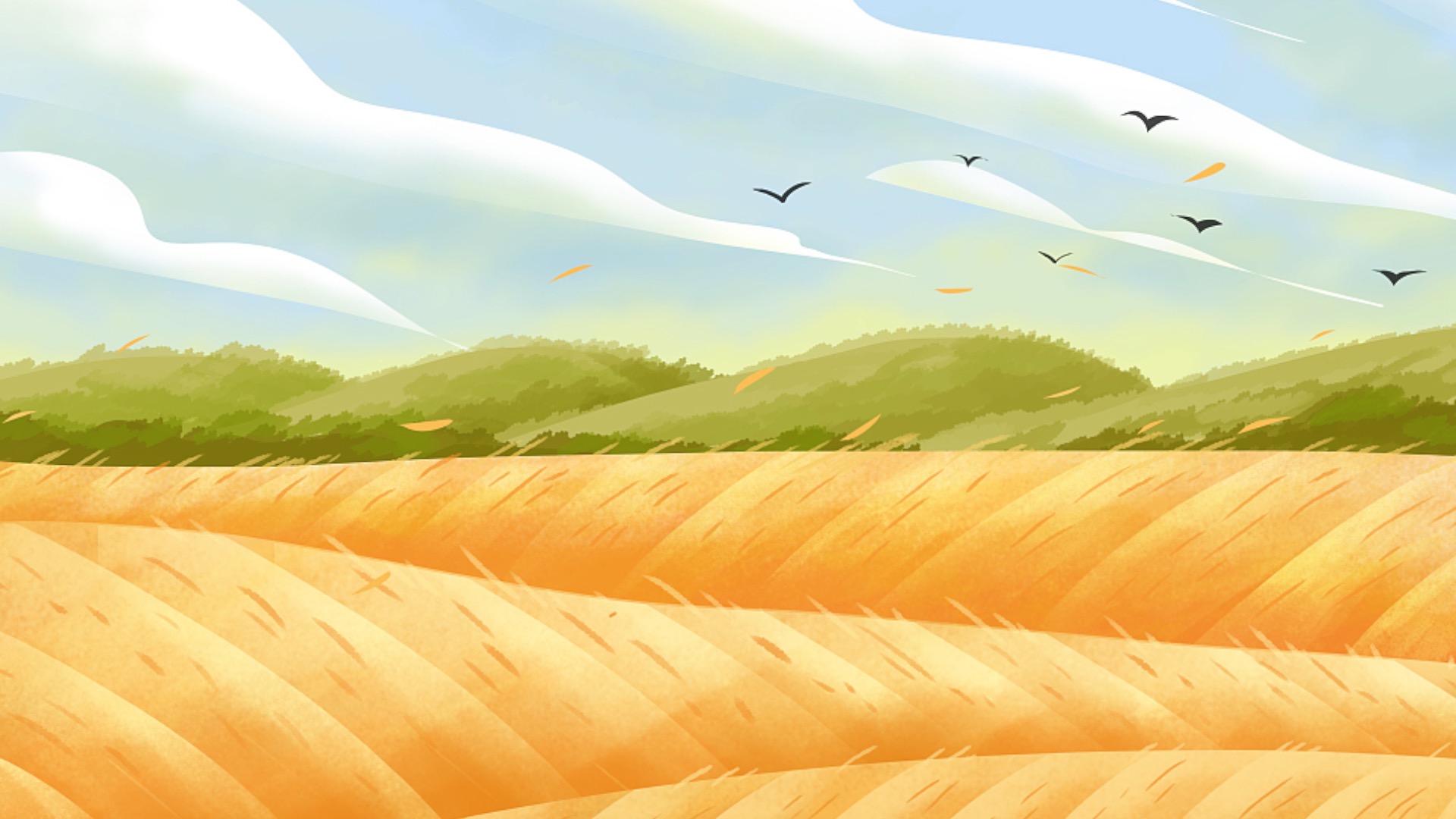04:31

Are you longing for the rural life and the joys of nature? When an idyllic setting during a summer night becomes a poet's choice of subject matter, what kind of pleasant surprises will it bring?
In this episode of Mastering Chinese Poetry, we look at a classic story by Song Dynasty (960-1279) poet Xin Qiji: "A Summer Night on My Way Home from the Yellow Sand Ridge."
A Summer Night on My Way Home from the Yellow Sand Ridge
Startled by magpies leaving the branch in moonlight,
I hear cicadas shrill in the breeze at midnight.
The rice fields' sweet smell promises a bumper year,
Listen, how frogs' croaks please the ear!
Beyond the clouds seven or eight stars twinkle;
Before the hills two or three raindrops sprinkle.
There is an inn beside the village temple. Look!
The winding path leads to the hut beside the brook.
(Translated by Xu Yuanchong)
míng yuè bié zhī jīng què
明月别枝惊鹊,
qīng fēng bàn yè míng chán
清风半夜鸣蝉。
dào huā xiāng lǐ shuō fēng nián
稻花香里说丰年,
tīng qǔ wā shēng yī piàn
听取蛙声一片。
With the senses of sight and sound, the first two sentences capture the changing features from magpies, cicadas, breezes and moonlight. The static and dynamic characters in the poem make the summer night scenery attract and fascinate.
The senses of smell and sound are blended in the following two sentences. The gentle breeze brings a sweet smell of rice fields and loud croaks of frogs. The personification of the storyteller is represented by the frog, with the vocalizations hinting at a bumper harvest and the poet's love of rurality.
qī bā gè xīng tiān wài
七八个星天外,
liǎng sān diǎn yǔ shān qián
两三点雨山前。
jiù shí máo diàn shè lín biān
旧时茅店社林边,
lù zhuǎn xī qiáo hū xiàn
路转溪桥忽见。
With the technique of parallel structure, the poet creates a scenario of hurrying on his way before a shower of rain in the beginning of the second half. He doesn't notice there is an inn beside the village temple, as he is so captivated by the frogs' croaks. "Look!" reveals the sense of pleasant surprise.
Breeze, moonlight, cicadas and magpies… At first glance, the poem is all about the commonplace, in plain words without any literary quotation. But the poet combines each element in an ingenious and elegant way, making the words paint an extraordinary scene. He implies a buoyant mood and deep love of rural life, through his narrative structure and depiction of scenery.

The Yellow Sand Ridge was located in the west of Shangrao, east China's Jiangxi Province. With a wonderful landscape, the area was also fit for farmland irrigation and water conservancy. The poet, who used to live in the area and traveled around, left behind quite a few poetic masterpieces. The line "the rice fields' sweet smell promises a bumper year" from this poem is still quoted to this day.
China has been an agricultural society since ancient times. The key is to do the right farm work in the right season.
Summertime is often the busiest in the eyes of farmers. A bumper harvest of summer crops supports food production throughout the whole year.
You can always find a sense of endless vitality and enduring charm in the hot summer.
Script writer: Zhang Meng
Video editor: Xu Xiaotong
Videographer: Qi Jianqiang
Cover designer: Gao Hongmei
Copy editor: John Goodrich
Chief editor: Qin Xiaohu
Producer: Li Tianfu
Executive producer: Wen Yaru
Supervisor: Zhang Shilei

